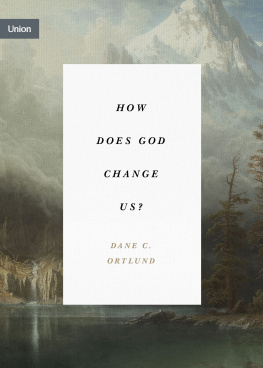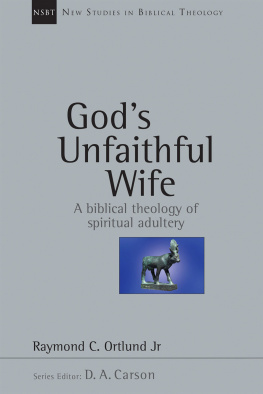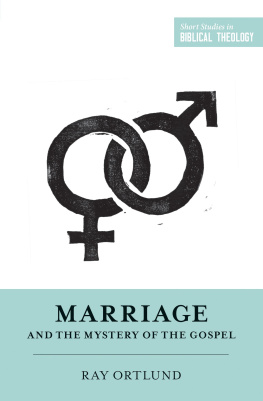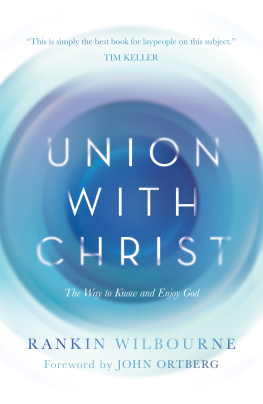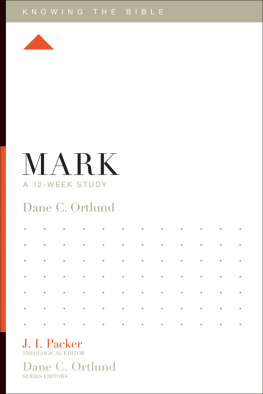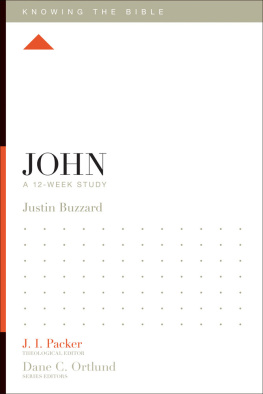Table of Contents
Landmarks
How Does God Change Us?
The Father ordains salvation, the Son accomplishes salvation, and the Spirit applies salvation. In other words, there is no Christian life without the Spirit. The Christian life is purely theoretical if there is no operation of the Spirit. Everything that we experience of God is the working of the Spirit. That is true at conversion, as the Spirit opens our eyes to our sin and Christs saving offer. And it is true of our growth.
The main thing I want to say in this chapter is this: because of the Spirit, you can grow . Those feelings of futility, the sense of impossibility, the settled resignation that you have permanently plateauedthat is not of heaven but of hell. Satan loves your shrugged acquiescence to your sin. Jesus Christs heart for you is flourishing growth. He understands more deeply than you do the psychology of the heart fueling the sin you cant seem to leave behind once and for all. And he is fully equipped to walk you out of that darkness. For he has given you the most precious gift of all: his own Holy Spirit.
If you are a Christian, you are now permanently indwelt by the Spirit, and if you are permanently indwelt by the Spirit, then you have been supernaturalized . If you choose to stay in your sins, you wont be able to stand before God one day and tell him he didnt provide you with the resources.
Three Kinds of Men
But are there not plenty of decent human beings who are not indwelt by the Spirit, you may wonder? Certainly. That is because all people are created in the image of God, and by Gods universal common grace he restrains much evil that would otherwise be executed.
But still, you might wonder, do we really need the Spirit in order to live a moral life? The answer is that we do not need the Spirit to live a moral life, but we do need the Spirit to live a supernatural life. In other words, we dont need the Spirit to be different on the outside; we do need the Spirit to be different on the inside.
So we can stiff-arm God by breaking all the rules, or we can stiff-arm God by keeping all his rules but doing so begrudgingly.
C. S. Lewis brilliantly captures this in his little essay Three Kinds of Men. He says that there are not two but three kinds of people in the world. The first consists of those who live purely for themselves, and all that they do serves their own selfish cares. The second kind are those who acknowledge that there is some code outside them that they should followwhether conscience or the Ten Commandments or what their parents taught them or whatever. Lewis says that people of this second kind see this other moral claim on them but feel a tension between that external moral claim and their own natural desires. As a result they are constantly swiveling back and forth between pursuing their own desires and following this higher claim. Lewis insightfully relates this tension to that of paying a taxpeople in this second category pay their taxes faithfully but hope that something will be left over for them to spend on themselves.
Some people throw out all rules (group 1). Others try to keep all the rules (group 2). Neither approach is New Testament Christianity. The third kind of person is operating on a different plane entirely. Lewis puts it like this:
The third class is of those who can say like St Paul that for them to live is Christ. These people have got rid of the tiresome business of adjusting the rival claims of Self and God by the simple expedient of rejecting the claims of Self altogether. The old egoistic will has been turned round, reconditioned, and made into a new thing. The will of Christ no longer limits theirs; it is theirs. All their time, in belonging to Him, belongs also to them, for they are His.
Lewis goes on to conclude that it is simplistic to view only two kinds of people, the disobedient and the obedient. For we can be obedient in the sense that we follow a certain code, yet in a taxpaying kind of way. Authentic Christianity is not simply doing mechanically what God says but enjoying God. The price of Christ is something, in a way, much easier than moral effortit is to want Him.
The point of this book on growing in Christ is to help Christians leave behind the second kind of person Lewis describes here and to be melted, more and more deeply, into the third kind of person. And heres the point: we only get from person 2 to person 3 through the Holy Spirit. To grow as a disciple of Christ is not adding Christ to your life but collapsing into Christ as your life. Hes not a new top priority, competing with the other claims of reputation, finances, and sexual gratification. He is asking you to embrace the freefall of total abandon to his purpose in your life. And that is why the Holy Spirit dwells within you. He is the one who is empowering you to do what would be utterly impossible left to carnal resourcesto step into the delicious, terrifying freedom of single-minded allegiance to Jesus .
It may feel impossible to you to do that. Thats good. It is impossible. Youll never get there until you first try living for Christ out of your own strength and discover just how fearful and cautious and spiritually impotent you are on your own steam. Its then, as you give up on yourself and throw your hands up in the air, that your heart is most fertile for the supernaturalizing power of the Holy Spirit.
Closed vents cant be cleaned, full cups cant be filled, and the Spirit does not enter where we are quietly operating out of self-dependence. But the distraught, the empty, the pleading, the self-despairing, those tired of paying the tax of obedience to God and trying to live on whats left overtheirs are hearts irresistible to the humble Holy Spirit.
A Foretaste of Heaven
Keep in step with the person of the Holy Spirit. Ask the Father to fill you with the Spirit. Look to Christ, in the power of the Spirit. Open yourself up to the Spirit. Consecrate yourself to the beautiful Spirits ways in your life. Recognize and believe way down deep in your heart that without the empowering Spirit all your ministry and efforts and evangelizing and attempts to kill sin will be in vain.
As you do so, you will be a little walking portrait of heaven itself to everyone around you. With lots of foibles and mistakes, for sure. And many lapses back into walking in the fleshlike Lewiss second kind of man. But here and there, at first for short bursts but gradually for longer stretches of your day, you will be learning to operate out of Gods own divine resources. You will be giving people a taste of Jesus himself, the Lord whose Spirit has taken up residence within you.
We have sharpened our vision of who Jesus is. And we have established the ongoing salutary reality of self-despair and collapsing in penitent faith time and again into the arms of that Jesus . But does this Jesus remain at a distance? How do we actually access him?
The New Testament gives a resounding answer. Those who collapse into him in repentance and faith are united to himjoined to him one with him. This is the controlling center, according to the New Testament, of what it means to be a Christian. And most fundamentally it is our union with Christ that, according to Scripture, fosters growth (e.g., Rom. 6:15 ).
Macro and Micro
But what does it mean to be in Christ?
The New Testament uses the language of union with Christ in basically two ways. We could call them the macro and the micro realities to union with Christ, or the cosmic and the intimate, or the federal and the personal.
The macro dimension to union with Christ is that he is your leader, and as he goes, so you go. His fate is yours. Why? Because you are in him. That may sound a little odd, especially for those of us who live in the West today. But for most human cultures throughout most of human history, including Bible times, this way of thinking about a leader and his people was normal and natural. The formal name for it is corporate solidarity. If youve ever heard Christ referred to as believers federal head, thats getting at the same notion. The idea is that the one represents the many, and the many are represented by the one.

